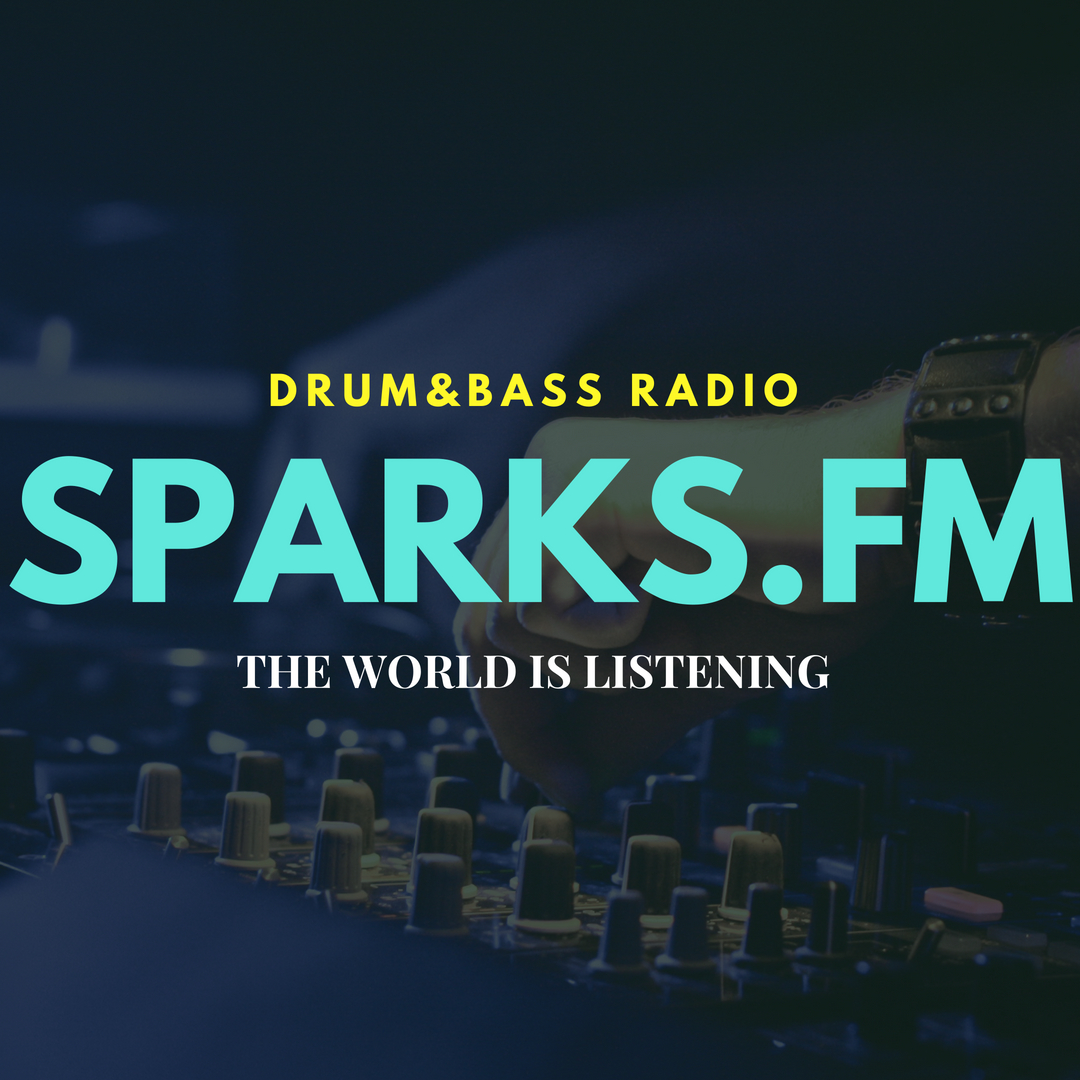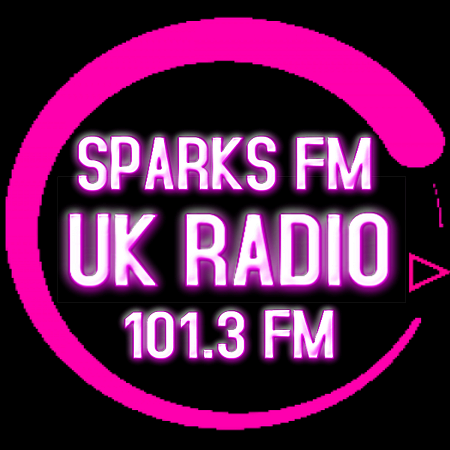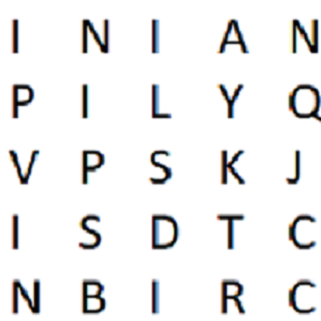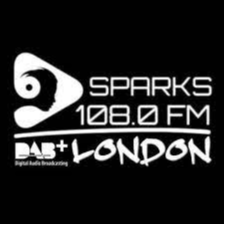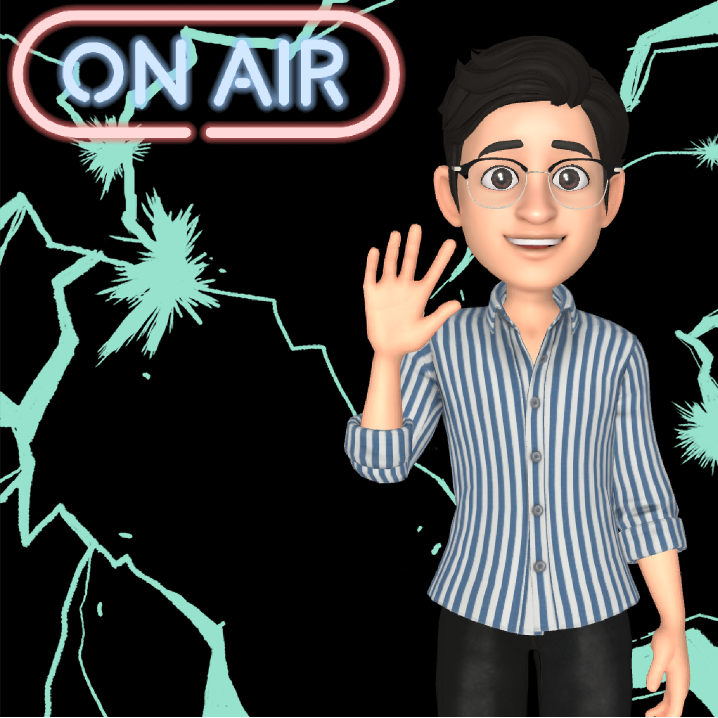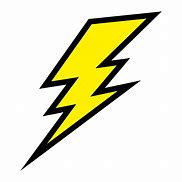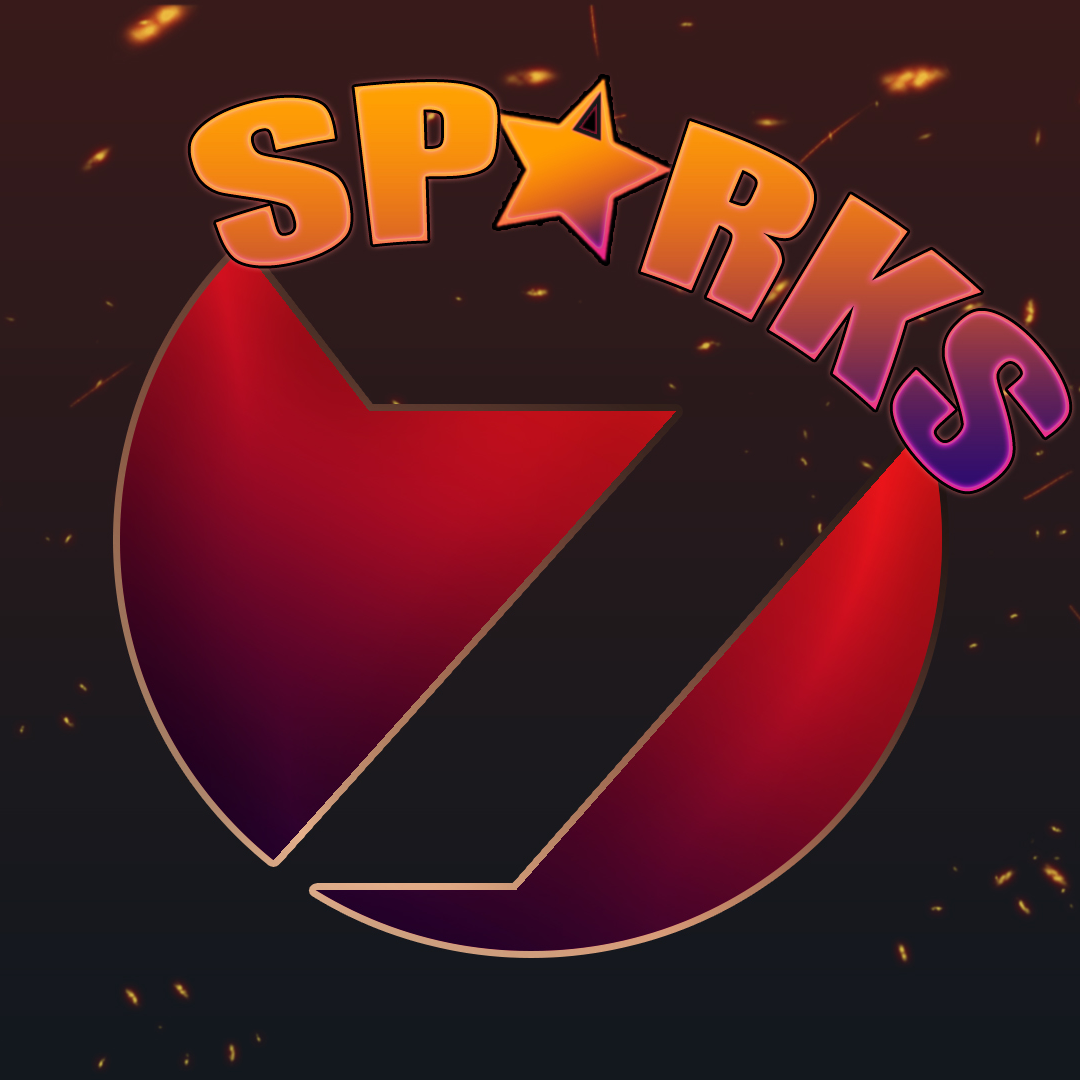Important Information
As of January 1, 2020, Radionomy will migrate towards the Shoutcast platform. This evolution is part of the Group’s wish to offer all digital radio producers new professional-quality tools to better meet their needs.
Shoutcast has been a leader throughout the world in digital radio. It provides detailed statistics and helps its users to develop their audience. More than a thousand partners carry Shoutcast stations to their connected apps and devices.
Discover the Shoutcast solution.
Sparks / 12 search results
Sort by relevance popularity name newest
Sparks
Sparks is an American band formed in Los Angeles in 1971 by brothers Ron (keyboards) and Russell Mael (vocals), renamed from Halfnelson, formed in 1968. Best known for their quirky approach to songwriting, Sparks' music is often accompanied by intelligent, sophisticated, and acerbic lyrics, and an idiosyncratic, theatrical stage presence, typified in the contrast between Russell's wide-eyed hyperactive frontman antics and Ron's sedentary scowling. They are also noted for Russell Mael's falsetto voice and Ron Mael's keyboard style.Though the band's long career has seen them successfully pioneer many different musical genres; including glam rock, power pop, electronic dance music, mainstream pop and most recently chamber pop, Sparks have created their own unique musical universe. While achieving chart success in various countries around the world including United Kingdom, Germany, France, and the United States, they have enjoyed a cult following since their first releases. Sparks have been highly influential on the development of popular music, in particular on the late 1970s scene, when in collaboration with Giorgio Moroder (and Telex subsequently), they reinvented themselves as an electronic pop duo, and abandoned the traditional rock band line up. Their frequently changing styles and visual presentations have kept the band at the forefront of modern, artful pop music.The 2002 release of Lil' Beethoven, their "genre-defying opus", as well as the more recent albums Hello Young Lovers (2006, their 20th studio album), Exotic Creatures Of The Deep (2008), and their latest fantasy musical The Seduction of Ingmar Bergman (2009–2010) have brought Sparks renewed critical and commercial success, and seen them continue to "steer clear of pop conventions."Sparks are best known for the songs "This Town Ain't Big Enough for Both of Us", which reached number 2 in the British charts in 1974, the electronic hit "The Number One Song In Heaven" in 1979, "When I'm With You" which topped the French Charts in 1980, the single "I Predict" became Sparks' first hit on the Billboard Hot 100 reaching #60 in May 1982, the 1984 US hit "Cool Places" with Go-Go Jane Wiedlin, and "When Do I Get To Sing 'My Way'" which topped the German and European charts in 1994/95 and was the top airplay record in Germany for 1994.Early inceptionThe history of Sparks spans five decades, from inception in the late 1960s LA club scene, through adoption by British fans in the middle 1970s, electronic experimentation in the late 1970s, and finally breaking through in the US in the early 1980s, a cinematic sojourn at the end of that decade with a return to form in the mid-1990s which continues to this day as they continue to push the boundaries of pop music.Brothers Ron and Russell Mael grew up in Pacific Palisades, in western Los Angeles County, California, during the “Golden Age” of the LA club scene, with The Doors, Love and The Standells regularly playing the Whisky-a-Go-Go on Sunset Strip and the Beach Boys playing the afternoon event Teenage Fair. Both Ron and Russell Mael are seen in the audience during the Ronettes section of the famous rock movie Big TNT Show, filmed in 1966. Both attended UCLA, Ron studying cinema and graphic art, Russell theatre arts and filmmaking. Detesting the folk music scene, which they considered "cerebral and sedate and we had no time for that", they developed a particular taste in English bands of the time such as The Who, Syd Barrett's Pink Floyd, The Kinks and The Move, which led to their description of themselves as "Anglophiles".Forming Halfnelson in 1968, they soon came to the attention of producer Todd Rundgren, at whose urging Albert Grossman signed the band to his Bearsville record label. Their self-titled debut — with the line-up consisting of college friend Earle Mankey on guitar, Mankey's brother James on bass, Harley Feinstein now on drums and Rundgren producing — sold poorly, but after switching labels to Warner Bros. Records and renaming themselves Sparks, a play on the Marx Brothers, the re-issued debut spawned the minor regional hit "Wonder Girl".Their follow-up album, A Woofer In Tweeter's Clothing, led to a tour of the United Kingdom, including a residency at the Marquee in London, which incidentally saw on one night Queen open for Sparks. These London appearances helped them to secure a significant cult following. An appearance on the BBC Television's Old Grey Whistle Test led to wider interest where host Bob Harris compared the band to a cross between Frank Zappa's Mothers of Invention and The Monkees.Early SeventiesRelocating to England in 1973 with a new manager, John Hewlett, founder of John's Children, and a deal from Island Records, thanks in part to the exposure garnered by their BBC2 Television Whistle Test performance, they placed an ad in music weekly Melody Maker ("Wanted bass player for Sparks. Must be beard free and exciting") and through this hired Martin Gordon. With Adrian Fisher on guitar and Dinky Diamond on drums, in the midst of power strikes and a threatened vinyl shortage, they recorded their breakthrough Kimono My House in 1974, scoring a number 2 hit with the single "This Town Ain't Big Enough For Both Of Us", despite Elton John betting producer Muff Winwood that the song would not break into the charts. Sparks became a UK teen sensation appearing on the cover of "Melody Maker", "Record Mirror" and countless other pop magazines in the UK and Europe. Hits such as "This Town Ain't Big Enough For Both Of Us", "Amateur Hour" and "Never Turn Your Back On Mother Earth" led to many appearances on the BBC's flagship music show Top of the Pops. Russell's hyperactive movements were in sharp contrast to the keyboard-bound, soberly-dressed Ron's expressionless squint and Chaplin-esque mustache.Gordon and Fisher were later replaced by Trevor White and Ian Hampton. In 1975, the revised band returned to the USA to tour supporting the Kimono & Propaganda albums which had gained strong cult attention in New York, Cleveland, Chicago, San Francisco and Los Angeles primarily from FM radio play and a national TV appearance on Don Kirshner's Rock Concert. Flo and Eddie were the supporting act. Kid Leo, who claims responsibility for "breaking" Bowie and Springsteen in the U.S. was a champion of Sparks on his WMMS radio show in Cleveland. Sparks also performed on American Bandstand in 1975 with host Dick Clark mugging with Ron and on countless other TV shows in the US and abroad post 1977.The follow-up albums, Propaganda and Indiscreet, the latter produced by Tony Visconti, were similarly successful and produced the hit singles "Looks, Looks, Looks", "Never Turn Your Back On Mother Earth" and "Something For The Girl With Everything".Return home1976 saw the Maels return home to LA. Concerned that their music may have become stale, they changed to a more "American" sound and recorded Big Beat with Rupert Holmes and Jeffrey Lesser on production, followed by Introducing Sparks; both were mostly recorded with session musicians. This new "West Coast" sound yielded such songs as "Nothing To Do", "Everybody's Stupid", and "Throw Her Away (and Get A New One)". In 1976, Sparks made one of their first forays into the movie business, making a cameo appearance in the thriller film Rollercoaster, after Kiss turned down the roles. They performed the songs "Fill 'Er Up" and "Big Boy."By 1977 the brothers found themselves at a crossroads. They had tired of the rock band format and determined to take their music in a more electronic direction. They had expressed admiration for Giorgio Moroder to a German journalist who turned out to be a friend of his. As a result, they teamed up with Moroder and created No. 1 In Heaven, an album which would not only redefine the Sparks sound but would challenge the concept of what is meant by a band but also be a major influence on emerging electro pop artists. The follow-up in 1980, Terminal Jive, scored a massive hit single in France, "When I'm With You", which led to the Maels' staying in the country for a year promoting the album, Russell being sufficiently fluent in French. The single also hit the Top 20 in Australia, reaching No. 14.In 1978 and 1979 Sparks was finding the electronic equipment they had adopted for their new sound, too cumbersome to tour with and they returned to the more traditional band format for their next three releases. Whomp That Sucker, Angst In My Pants (two tracks from which appear later in the 1983 movie "Valley Girl") and Sparks In Outer Space. They finally broke into the US singles charts with "Cool Places" from 1983's Sparks In Outer Space. The track was a collaboration with Go-Go Jane Wiedlin, who, at one time, ran her own Sparks fanclub, and its success was in part thanks to LA's KROQ-FM radio station, which hailed them as local heroes. In 1984, the Maels wrote and performed several original songs on the soundtrack for the teen comedy feature film Bad Manners (aka: Growing Pains), including the film's title song, "Bad Manners".The late 1980s and early 1990s saw the brothers concentrate on filmmaking, particularly an attempt to make a manga, Mai, The Psychic Girl, into a movie musical. Despite interest from Tim Burton and six years' work on the project, the film has not yet gone into production. There currently is speculation that Tim Burton may once again take on the project and direct.1990s - A New BeginningIn 1994 the Maels returned with the release of Gratuitous Sax and Senseless Violins, providing the hit singles "When Do I Get To Sing My Way?" and "When I Kiss You (I Hear Charlie Parker Playing)". In Germany, "When Do I Get To Sing My Way" was the No. 1 airplay song for 1994 as well as being hailed critically for its poignant lyrics and touching melody. The group toured in support of the album with musician and actress Christi Haydon playing drums. Haydon also appeared in the videos for "When Do I Get To Sing My Way?" and "When I Kiss You (I Hear Charlie Parker Playing)".1997 saw the release of Plagiarism, an album of cover versions of their own songs featuring collaborations with Faith No More, Erasure and Jimmy Somerville. Half of the album was recorded by Tony Visconti in London with the other half recorded by the brothers in their own purpose-built studio in LA, surrounded by busts of Elvis. In 1998 they recorded the soundtrack for the movie Knock Off, starring Jean-Claude Van Damme, directed by the acclaimed Hong Kong based producer/director Tsui Hark (who had appeared on his own tribute song by the band on the album Gratuitous Sax and Senseless Violins).Balls, released in 2000, again put the band in a context of electronic instrumentation with some of Ron Mael's most striking and perceptive lyrics. With the release of "Balls" the band toured the UK, Germany, Japan and Australia.2000s - A New Beginning, AgainAfter Balls, the band resurfaced in 2002 with the release of the album which has been described as their "genre-defying opus". Lil' Beethoven, featuring quasi-classical arrangements strings and choirs, led to renewed interest in the band, for instance Record Collector magazine named the album as one of its "Best New Albums of 2002", describing it as "... possibly the most exciting and interesting release ever from such a long established act" and later in 2003 saying "... it really does feel like one of the best albums ever made." A UK and European tour had the band playing the entire album each night in the first half of the show, with fan favourites making up the second. The line-up now included former Faith No More guitarist Dean Menta in addition to Tammy Glover on drums. Long-time fan Morrissey invited Sparks to perform at the 2004 Meltdown Festival, of which he was curator. They performed their breakthrough Kimono My House album, followed by Lil Beethoven, both in their entirety. Also in this period, the duo appeared in the video for Justin Hawkins's cover of "This Town Ain't Big Enough For Both Of Us", in which Ron and Russell play the referee and MC at a darts match between Hawkins and darts champion Phil Taylor. This version of "This Town" reached No. 6 in the UK charts.February 2006 saw the release of Hello Young Lovers, their twentieth studio album. The album is regarded as carrying on where Lil' Beethoven left off, being described as "... cynical, intelligent and very, very funny", it has met with considerable acclaim. Sparks lead off the album with the striking tune that the BBC deemed too provocative in its title to play, "Dick Around." The song is a multi-section, multi-mood, highly layered track that many felt should have been a UK smash hit had the BBC not misinterpreted the title of the song as being other than it was.The brothers tend to be dismissive of the latest trends in popular music, seeing most current bands as lacking musical ambition and experimental drive. Indeed the predictable trends in much of modern rock, as they see it, served as inspiration for their latest album. However, they have expressed admiration for Eminem and Morrissey.The pair appeared in the season 6 finale of the US TV show Gilmore Girls, performing "Perfume" from the album Hello Young Lovers. They released a live DVD of a September 2006 show at the London Forum as well as a long-awaited CD release of their previously unavailable 1977 album Introducing Sparks. The track "Perfume" was featured in a Dolce & Gabbana TV commercial in 2009.On May 12, 2008, Sparks released the single "Good Morning", taken from the album Exotic Creatures Of The Deep.May and June 2008 saw the 21-night "Sparks Spectacular" in London, where they played each of their albums in chronological order during the first twenty nights, and premièred their new album on the twenty-first concert on June 13, 2008. Each night, they performed an album in its entirety followed by a rare track — many of the songs have never been performed live before. The band asked their fans to visit their website and vote for the track that they'd most like to hear the band perform during the second half of the 21st concert after the première of Exotic Creatures Of The Deep, though Russell Mael admitted that he and Ron would probably influence the poll a little.Fans who bought a "Golden Ticket" (which allowed entry into all 21 gigs) also received a poster signed by the band and a CD single entitled Islington N1, a reference to the postal address of the venue for the first 20 gigs.In 2009 the band played two consecutive nights at the London Forum on 20 and 21 March. They played Exotic Creatures of the Deep in its entirety at both gigs, followed by Kimono My House in its entirety on the first night and No. 1 In Heaven in its entirety on the second night.Valentine's Day evening 2009 saw Sparks perform the same show featuring their Exotic Creatures of the Deep and Kimono My House albums played in their entirety before a sold-out hometown crowd at the Mael Bros. alma mater in Los Angeles, UCLA.Ron and Russell Mael appear as interview subjects in the 2009 documentary The Magnificent Tati, discussing their proposed involvement during the early 1980s in a Jacques Tati movie titled Confusion, for which a screenplay was written but never shot due to Tati's death.The Seduction of Ingmar BergmanOn August 14, 2009, the band premièred the radio musical The Seduction of Ingmar Bergman, commissioned by the Swedish public radio (SR) and featuring the Mael brothers themselves and Swedish actors Elin Klinga and Jonas Malmsjö, both of whom worked with Bergman in his lifetime. The musical, partly in English, partly in Swedish, tells the story of Bergman's supposed relocation to Hollywood after his breakthrough with Smiles of a Summer Night (1956), and the surreal and discomforting encounter with the movie capital. On October 28, 2009, the UK's BBC 6 Music held a similar event in London whereby the musical was played in its entirety before a live audience at BBC Broadcasting House in London and later to be broadcast with a Q&A with the Maels. In interviews for Swedish newspapers, the band said they hoped to be able to theatrically stage the musical as well as turn the musical into a feature film. Amongst the filmmakers cited as undertaking "The Seduction of Ingmar Bergman" with the Mael Brothers is Canadian avant-garde director Guy Maddin.On June 25, 2011 as part of the Los Angeles Film Festival, Sparks presented the World Premiere live performance of The Seduction of Ingmar Bergman. The esteemed Canadian film director Guy Maddin provided directions based on the screenplay, with Ron and Russell reprising their recorded roles on stage. The role of Ingmar Bergman was performed by Finnish movie actor Peter Franzén. Ann Magnuson portrayed the role of Greta Garbo, and Rebecca Sjöwall returned to the role she had performed on the original album as the Hollywood Starlet. Tammy Glover also performed her role as the Hollywood Welcoming Committee that she sang on the original album. Other actors included Katie Puckrik, Dean Menta, Nina Sallinen, Jacob Sidney, and Sal Viscuso. The show was held at the John Anson Ford Amphitheatre in Hollywood, a fitting place to enact the premiere performance live. The group showcased at the film festival in their quest for funding for the feature film version. The performance garnered glowing reviews from journals such as The Huffington Post, the LA Times, the LA Weekly, and LA Record.In May 2013, Ron and Russell and producer Tomas Prasek (who joined them in the pursuit of the project in October 2012) attended the Cannes International Film Festival where they presented the "The Seduction of Ingmar Bergman" film project, raising great interest from a number of European, Canadian and American production and sales companies, journalists and filmmakers fond of Sparks (Leos Carax, Olivier Assayas, Ron Mann). Guy Maddin has been confirmed as the film's director, and the Mael brothers and Tomas Prasek are currently making steps to begin the pre-production stage.2010s - The Legacy ContinuesIn 2010, Sparks remixed Yoko Ono's song "Give Me Something". September 2, 2010 marks the debut of the new theme songs that Ron and Russell have composed and recorded for NPR radio's Bookworm show, broadcast in Los Angeles on station KCRW. The two songs mark the first time in 21 years that the Bookworm show has used a new theme song, these being commissioned by show host and Sparks fan Michael Silverblatt. The compositions are entitled, "Where Would We Be Without Books?" and "I Am A Bookworm."For the encore of what may have been the final live date ever in America for Faith No More on December 1, 2010 at the Hollywood Palladium in Los Angeles, Ron and Russell Mael were invited by Mike Patton and Co. to perform the Sparks' classic hit "This Town Ain't Big Enough For Both Of Us." To a surprised and ecstatic sold-out crowd, the brothers reprised the song that also appears as a collaboration with Faith No More on Sparks' 1997 album Plagiarism. The original Sparks' version is from their 1974 classic LP, "Kimono My House."In October 2012, Ron and Russell performed for the first time ever as a duo, with no band. The 18-city European tour titled "Two Hands, One Mouth" began in Lithuania and followed in Latvia, Finland, Norway, Sweden, Germany, Belgium, the UK and Ireland. The final UK concert of the tour was at the sold-out Barbican Centre in London. The tour then took the group to Japan with concerts in Tokyo and Osaka in January 2013. In April 2013, the show was presented for the first time in the US with two performances at the Coachella Festival. A short US tour followed.Sparks first ever live album, "Two Hands, One Mouth: Live In Europe" was released March 18, 2013. It contains concert recordings gathered from various cities during the October 2012 European tour.StyleSparks' musical style has changed dramatically over their forty-year career. In the beginning they attempted to emulate the sound of their English heroes, such as The Who, Syd Barrett-era Pink Floyd and The Kinks, sometimes even pretending to be an English band while on the LA club circuit. They relocated to England during the Glam rock era where, despite cutting an odd figure on this scene, they found success with their polished brand of intricate pop tunes and convoluted lyrics. By the second half of the decade, they were concerned that the sound they had developed while based in England was in danger of becoming stale; they returned to LA, determined to adopt a more "West Coast" sound. This they achieved with producer Rupert Holmes on Big Beat and (sans Holmes) on Introducing Sparks.However the band were not satisfied with the results, which they felt lacked personality, perhaps because of the reliance on session musicians. This led to the most dramatic change of style the band would attempt, when they teamed up with Giorgio Moroder, dropped the band format altogether and produced No. 1 In Heaven. This album is regarded as a landmark in the development of electronic music and greatly influenced bands which would emerge in the following years. They soon returned to a more traditional line-up, which remained until 1988's Interior Design. There then followed a long hiatus until 1994's Gratuitous Sax & Senseless Violins, which was a foray into the techno dance world, which they had helped to spawn back in the late 1970s. While their style has remained on the same path since Gratuitous Sax..., they have nonetheless continued to push the boundaries of conventional pop music and songwriting, remaining both innovative and highly influential.Lyrically, the band's style has been described as coming from "the school of Cole Porter, favouring caustic wit over trivial personal problems, ...achingly clever lyrics seesaw between superficial gloss, profound sentiment and the incomprehensibly bizarre." Repeated lyrical motifs have become a distinct feature on recent albums. On "My Baby’s Taking Me Home" off Lil' Beethoven (2002), the song title is repeated 104 times, with no other words being used, other than a spoken interlude. Similarly, on the same album, "Your Call Is Very Important To Us", uses a corporation style call-hold message: "Your call is very important to us. Please hold" which is then sung with some additional words: "At first she said your call is very important to us, then she said please, please hold." The only other lyrics in the song are "Red light", "Green light", "I'm Getting Mixed Signals" and "Sorry, I'm Going To Have To Put You Back On Hold". These elements are layered with a simple piano line to create a highly textured effect.LegacyThey are held in esteem by such bands and performers as Kurt Cobain, Cait Brennan, Dax Riggs, Franz Ferdinand, Morrissey, Arcade Fire, MGMT, Sonic Youth, Ramones, Duran Duran, Björk, Depeche Mode, New Order, Def Leppard, Faith No More, The Pixies, Ween, Will Sheff of Okkervil River, Mark Burgess of the Chameleons, Human League, ABBA, Paul McCartney and They Might Be Giants, all of whom cite Sparks as a major influence.Other musiciansIn addition to the Maels, the following musicians have more recently played or recorded with Sparks: Steven Nistor, Josh Klinghoffer, Jim Wilson, Marcus Blake, Steven McDonald, Dean Menta and Tammy Glover.Previous musicians who have played in, or recorded with, Sparks include Ben Benay, Leslie Bohem, Alan Broadbent, the late Norman "Dinky" Diamond, Harold Faltermeyer, Harley Feinstein, the late Adrian Fisher, Keith Forsey, David Foster, James Goodwin, Martin Gordon, Ed Greene, Bob Haag, Ian Hampton, Christie Haydon, David Kendrick, Sal Maida, Robert Mache, Earle Mankey, Jim Mankey, Hilly Boy Michaels, Giorgio Moroder, David Paich, Mike Porcaro, Reinie Press, Hans Reumschüssel, Lee Ritenour, Thom Rotella, Jeffrey Salen, Spencer Sercombe, John Thomas, Tony Visconti, Thomas White, Trevor White, Luke Zamperini and Richie Zito.
Read more about Sparks


